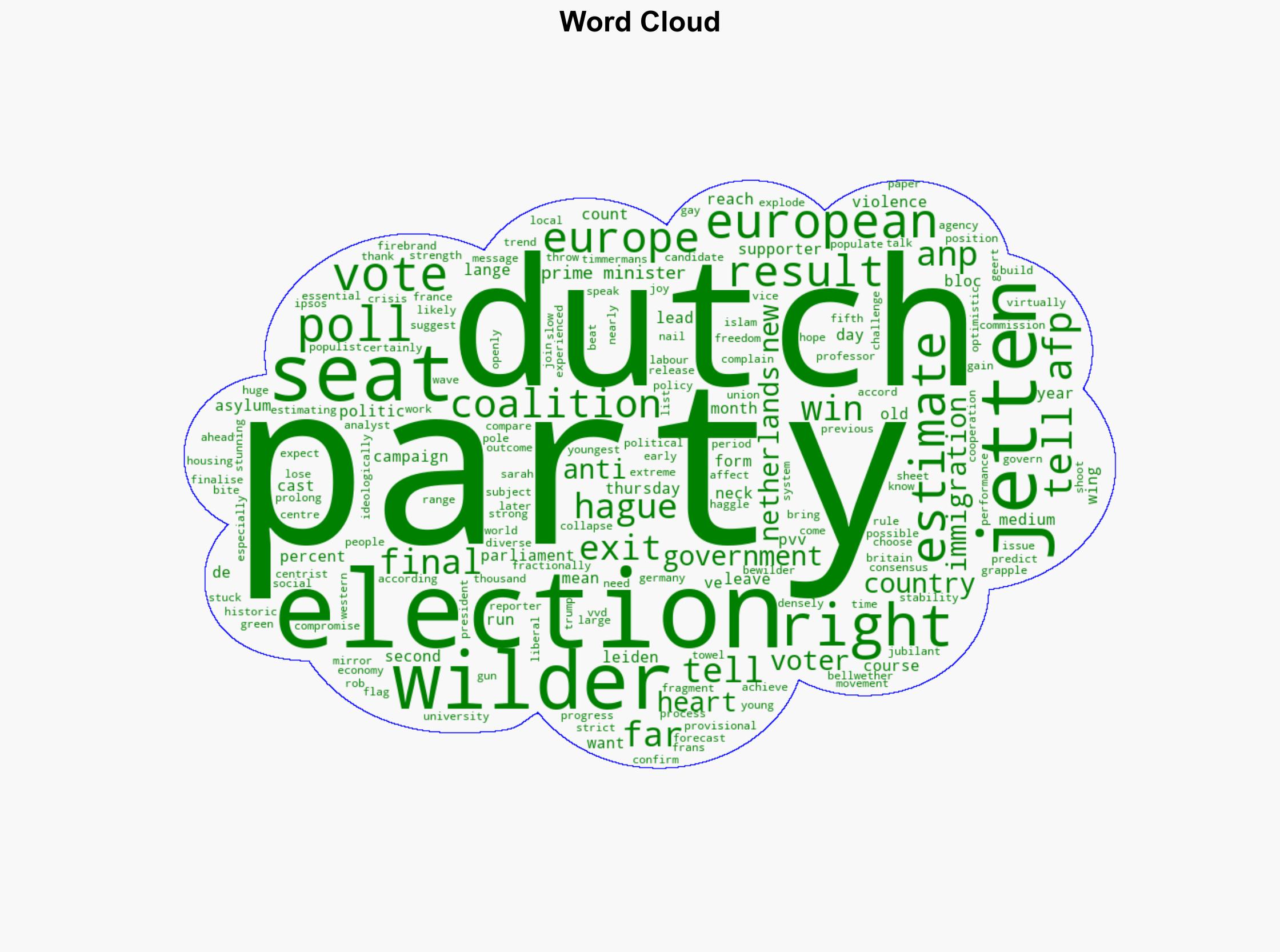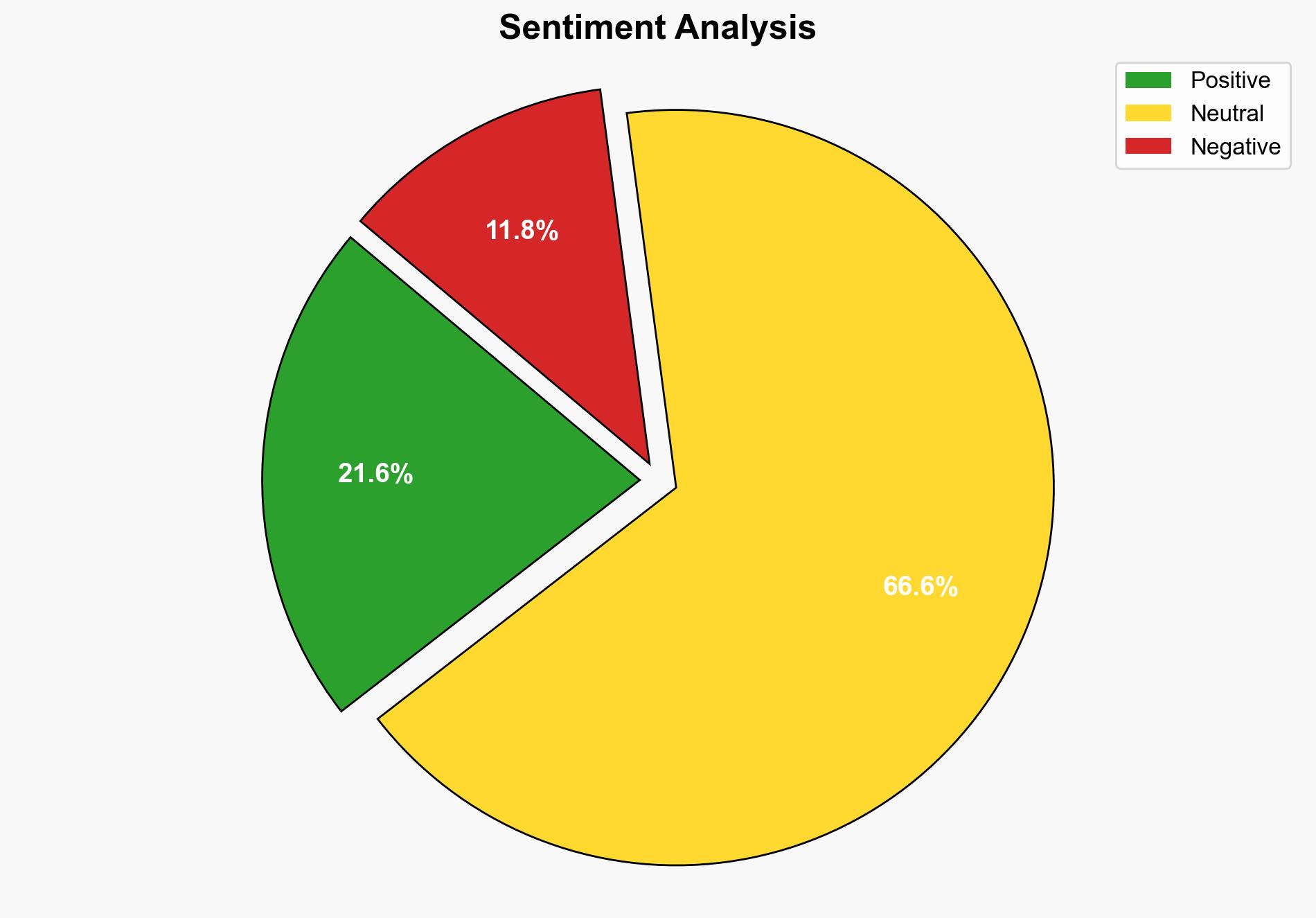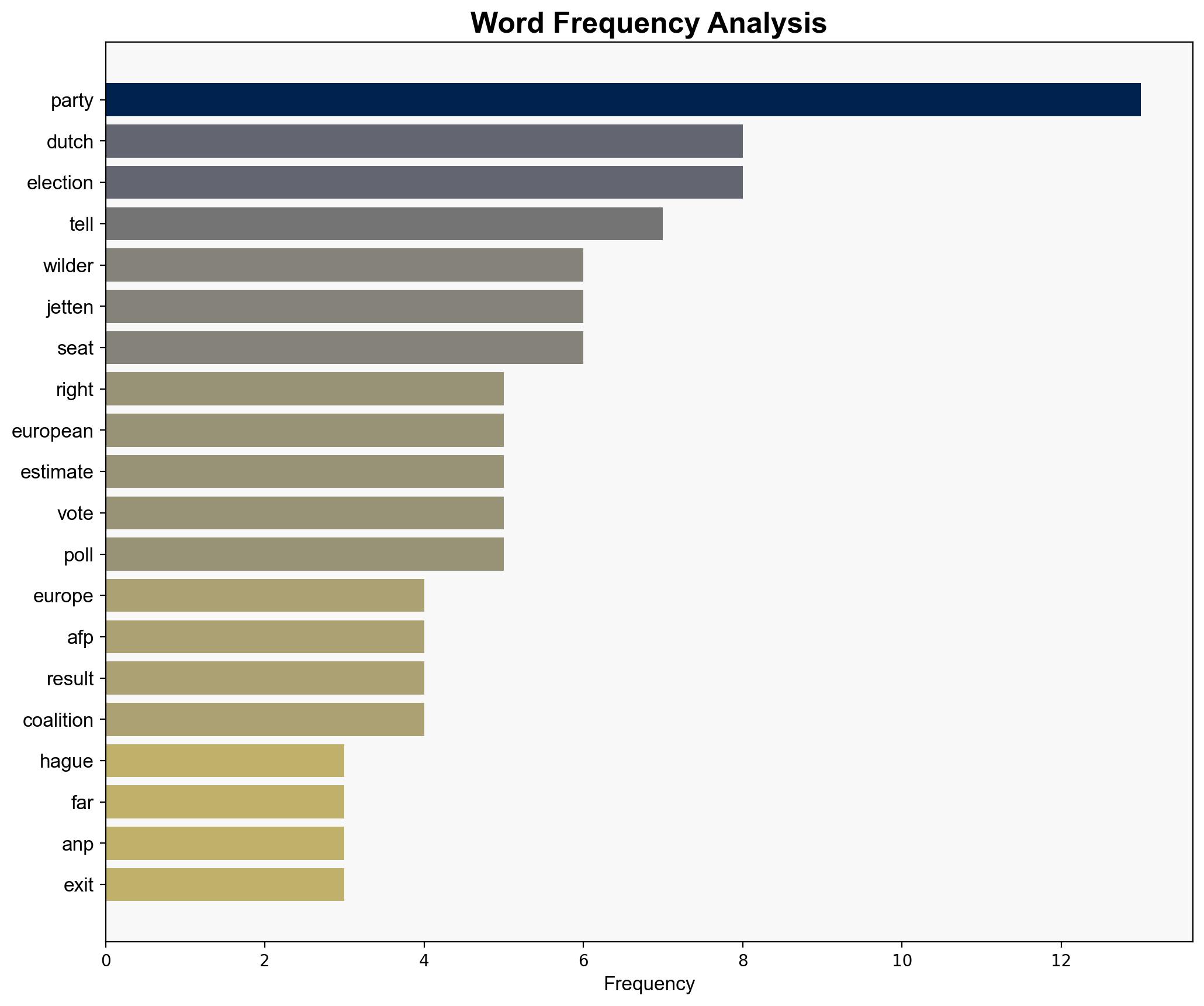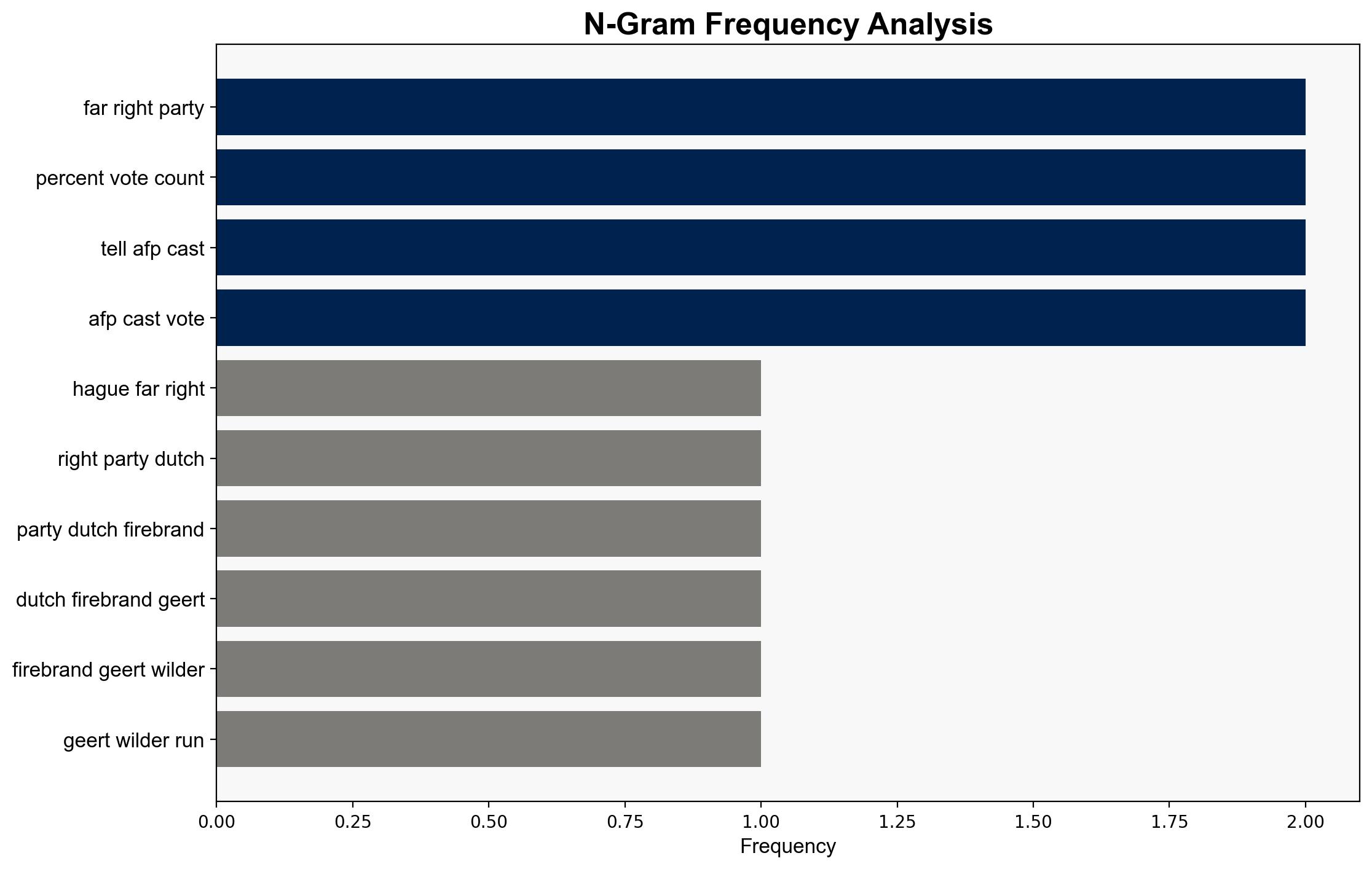Far-right and centrists neck-and-neck in Dutch election estimates – The Times of India
Published on: 2025-10-30
Intelligence Report: Far-right and centrists neck-and-neck in Dutch election estimates – The Times of India
1. BLUF (Bottom Line Up Front)
The Dutch election results indicate a close contest between the far-right and centrist parties, with significant implications for European political dynamics. The most supported hypothesis is that the centrist party, led by Rob Jetten, will form a coalition government despite the strong performance of Geert Wilders’ far-right party. Confidence level: Moderate. Recommended action: Monitor coalition negotiations closely and assess potential shifts in Dutch and European Union policies.
2. Competing Hypotheses
Hypothesis 1: The centrist party, led by Rob Jetten, will successfully form a coalition government, leveraging its slight lead and broad appeal to other parties.
Hypothesis 2: Geert Wilders’ far-right party will capitalize on its strong electoral performance to form a coalition, potentially leading to significant policy shifts in immigration and EU relations.
Using ACH 2.0, Hypothesis 1 is better supported due to the centrist party’s broader appeal and the historical difficulty of far-right parties in forming coalitions in the Netherlands.
3. Key Assumptions and Red Flags
Assumptions:
– The centrist party can negotiate effectively with other parties.
– Far-right parties will face challenges in coalition-building due to ideological differences.
Red Flags:
– Underestimating the far-right’s ability to form alliances.
– Overreliance on exit polls and provisional estimates.
Blind Spots:
– Potential shifts in voter sentiment or party alliances post-election.
4. Implications and Strategic Risks
The election results reflect a broader European trend of rising far-right influence, posing risks to EU cohesion and immigration policies. A far-right coalition could lead to stricter immigration controls and strained EU relations. Conversely, a centrist-led government may stabilize Dutch politics but face challenges in addressing populist sentiments.
5. Recommendations and Outlook
- Monitor coalition negotiations for signs of instability or unexpected alliances.
- Engage with Dutch political entities to understand potential policy shifts.
- Scenario Projections:
- Best: A stable centrist coalition forms, maintaining EU alignment.
- Worst: A far-right coalition emerges, leading to policy shifts and EU tensions.
- Most Likely: A centrist coalition forms with concessions to right-wing demands.
6. Key Individuals and Entities
– Geert Wilders
– Rob Jetten
– Frans Timmermans
7. Thematic Tags
national security threats, regional focus, political stability, coalition dynamics





